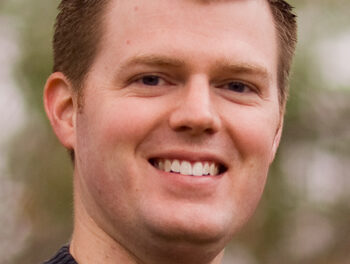As part of its effort to promote contemporary musical works in the Raleigh area, North Carolina Opera presented All Souls at CAM Raleigh, featuring vocalist Ashleigh Semkiw, the chamber orchestra New Music Raleigh, and prerecorded sound samples. All Souls consists of nine excerpts from Cees Nooteboom‘s1998 novel All Souls Day (Allerzielen) set to music by Duke faculty member and composer John Supko. The work was premiered at Washington’s National Gallery of Art only nine days before this performance in Raleigh. Ranging from halting and insecure to vivid and exultant, the excerpts detail an unsure romance involving a documentary filmmaker (haunted by his late wife and his late son) and an exotic graduate student from a broken home.
Artistic director and conductor Timothy Meyers coordinated the orchestra and vocalist beautifully with the background tracks controlled by composer Supko from the rear of the room. They sounded as if they were all coming from the same place: a movie with no screen, a book with a soundtrack. All three parts – orchestra, voice, and electronic tracks – were equally balanced; though the soaring soprano voice threatened to drown out the soft male narrator occasionally, all could always be heard, and each was given predominance when appropriate. At times the story was most important, whereas at other times the music or the words, sung or spoken by Semkiw, drew out the action.
All Souls is like Lieder, German art-songs generally performed by solo voice and piano (as made popular by Schubert and Wolf in the early 19th-century), in a 21st-century setting, overtopping a torrid love story not built from the stuff of fantasy but from present issues: cafeterias, one-night-stands, and muggings. Though the music is anything but traditional, the traditional chamber orchestra – harp, piano, and variety of percussion instruments – was expertly utilized to create Supko’s atmospheric, pointillistic music.
The fragmented melodies were passed deftly between the orchestra and Semkiw, culminating in soaring high notes to signify main character Arthur’s eventual freedom. Semkiw easily plucked these notes out of the stratosphere and delivered them with precision and litheness, despite having to sing throughout her entire vocal range.
Although Nooteboom’s story is not pleasant or particularly gratifying, the excerpts used in Supko’s work draw audiences headlong into an invigorating exploration of contemporary music. The performers and composer are to be applauded for their diligent work in becoming living instruments for art and presenting a cohesive concert-piece-turned-opera that is greater than just the music, or just the story, or just the sounds. Hearing this work inside a modern art gallery underscores what Supko’s work truly is: new art to consider, to appreciate, and to reflect a personal interpretation of the human experience.
The NC Opera’s season continues on January 24 and 26 with La Bohème. For details, click here.











